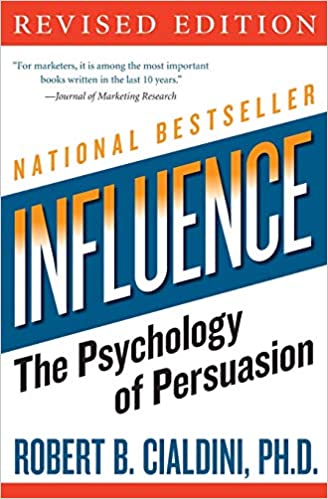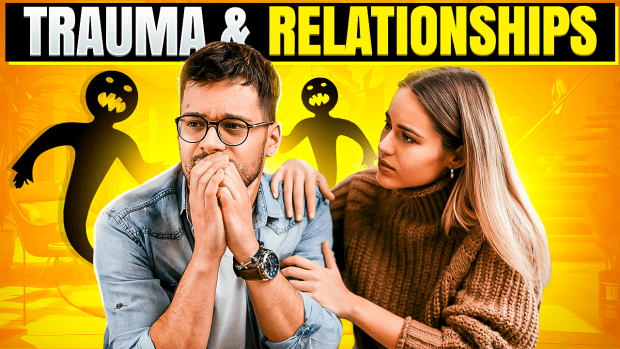In the depths of our closest relationships, unseen forces can simmer beneath the surface, influencing our interactions and shaping our experiences. These hidden effects are often borne from past trauma, casting a shadow on the dynamics between partners, friends, or family members. In this revealing article, we dive into the depths of the impact trauma can have on relationships, unveiling five hidden effects that may go unnoticed but carry significant weight.
From difficulty with trust and intimacy to patterns of self-sabotage, trauma can leave profound imprints on individuals, affecting their ability to connect with others on a deep level. Understanding these hidden effects is crucial not only for those who have experienced trauma but also for their loved ones who may struggle to comprehend and navigate these uncharted waters.
By shedding light on these hidden effects, we hope to foster empathy, compassion, and healing in relationships affected by trauma. Whether you are personally grappling with the aftermath of trauma or seeking insight into supporting someone you care about, this article aims to uncover the unseen impact and empower you to forge stronger, more resilient connections.

Influence
by Robert Cialdini
⏱ 16 minutes reading time
🎧 Audio version available
The impact of trauma on relationships
Trauma can have far-reaching consequences that extend beyond the individual directly affected. When someone experiences trauma, their relationships can bear the brunt of its impact. The effects of trauma can manifest in various ways, altering the dynamics and quality of the connections we share with others.
One of the most common effects of trauma on relationships is a heightened sense of fear and hypervigilance. Individuals who have experienced trauma may find it challenging to trust others, constantly on guard for potential threats. This underlying fear can lead to difficulties in forming and maintaining healthy relationships, as trust is the foundation upon which strong connections are built.
Additionally, trauma can disrupt communication within relationships. Individuals who have experienced trauma may struggle to express their emotions, leading to misunderstandings and conflicts. They may also find it challenging to set boundaries or assert their needs, resulting in imbalances and resentment within the relationship.
Trust issues and their role in relationships
Trust is a fundamental aspect of any healthy relationship. However, trauma can profoundly impact an individual’s ability to trust others. When someone has experienced trauma, they may develop a deep-seated fear of being hurt or betrayed again. This fear can lead to a constant state of guardedness, making it challenging to fully trust their partner or loved ones.
Trauma survivors may also experience difficulties distinguishing between past and present experiences. Past trauma can create a lens through which they view their current relationships, causing them to perceive situations as dangerous or threatening, even when they are not. This can result in emotional distance, suspicion, and a reluctance to let others in.
Rebuilding trust in a relationship affected by trauma requires patience, understanding, and open communication. It is essential for both partners to recognize the impact of trauma and work together to establish a sense of safety and security. Therapy or counseling can be beneficial in navigating these trust issues and rebuilding a foundation of trust.
Communication challenges in the aftermath of trauma
Effective communication is vital for maintaining healthy relationships. However, trauma can severely disrupt communication dynamics between individuals. The experience of trauma can leave survivors feeling overwhelmed with emotions, making it difficult to articulate their thoughts and feelings. They may also struggle with dissociation, detaching from their emotions as a coping mechanism.
In a relationship affected by trauma, communication challenges can arise when one partner feels unheard or misunderstood. Miscommunication can lead to increased tension and frustration, further straining the relationship. It is crucial for both partners to cultivate open and non-judgmental communication, creating a safe space for sharing and understanding each other’s experiences.
Intimacy and vulnerability after experiencing trauma
Intimacy and vulnerability are integral components of healthy relationships. However, trauma can significantly impact an individual’s ability to engage in these aspects of connection. Trauma survivors may find it challenging to trust others enough to be emotionally vulnerable or to engage in physical intimacy.
The experience of trauma can lead to a heightened sense of self-protection, making it difficult for survivors to let their guard down and fully engage with their partners. Fear of being vulnerable and the potential for re-traumatization can create barriers to intimacy, leaving both partners feeling distant and unfulfilled.
It is essential for both partners to approach intimacy and vulnerability with patience and understanding. Creating a safe and supportive environment can help trauma survivors feel more comfortable and secure in opening up emotionally and sexually. Professional therapy or counseling can also provide guidance and support in navigating the complexities of intimacy after trauma.
Navigating emotional triggers in relationships
Trauma can leave survivors with emotional triggers – specific stimuli or situations that evoke intense emotional or physiological responses linked to the traumatic event. These triggers can be unpredictable, and their effects can ripple through relationships.
When a partner or loved one has experienced trauma, understanding and navigating their triggers is crucial. Triggers can range from certain smells or sounds to specific words or actions. Being mindful of potential triggers and creating a safe space for open communication can help both partners navigate these challenges more effectively.
Supporting a trauma survivor through their triggers requires patience, empathy, and compassion. It is essential to avoid judgment or minimizing their experiences, as this can further exacerbate their emotional responses. Encouraging the survivor to establish self-care routines and seeking professional help can also be beneficial in managing triggers and promoting healing within the relationship.
Healing and rebuilding relationships after trauma
Healing and rebuilding relationships after trauma is a complex and ongoing process. It requires dedication, commitment, and a willingness to address the underlying issues that trauma has brought to the surface. Both partners must be willing to engage in individual and couples therapy to work through their respective challenges and foster growth within the relationship.
Rebuilding a relationship after trauma involves creating a safe and supportive environment that nurtures healing and growth. It requires open communication, mutual respect, and a shared commitment to understanding and addressing the impact of trauma on the relationship. With patience, empathy, and professional guidance, it is possible to rebuild a relationship into something stronger and more resilient than before.
Seeking professional help for trauma-related relationship issues
Navigating the impact of trauma on relationships can be challenging, and seeking professional help is often crucial in facilitating healing and growth. Therapists or counselors with experience in trauma-related issues can provide guidance, support, and specialized interventions to help individuals and couples navigate the complexities of trauma within their relationships.
Professional help can offer a safe and non-judgmental space for individuals to process their trauma, develop coping strategies, and rebuild their relationships. Therapeutic modalities such as trauma-focused therapy, EMDR, or couples counseling can be particularly effective in addressing the unique challenges trauma brings to relationships.
Supporting a partner with trauma in a relationship
Supporting a partner who has experienced trauma requires empathy, patience, and a commitment to their healing journey. It is crucial to educate oneself about trauma and its effects to better understand and support the survivor. Listening without judgment, validating their experiences, and offering reassurance can go a long way in creating a safe and supportive environment.
Encouraging the survivor to seek professional help and providing resources for therapy or support groups can also be beneficial. Remember to prioritize self-care and seek support for yourself as well, as supporting a partner through trauma can be emotionally taxing. By working together and fostering a trauma-informed relationship, both partners can navigate the challenges of trauma and emerge stronger.
Related: Unlocking the Reasons: 5 Clear Signs You’ve Given Up on Dating
Understanding the hidden effects of trauma
Unveiling the hidden effects of trauma on relationships is crucial for fostering empathy, compassion, and healing. By understanding the impact trauma can have on trust, communication, intimacy, and emotional triggers, individuals and couples can navigate these challenges with greater awareness and sensitivity.
Trauma-informed relationships require patience, understanding, and a commitment to growth. By seeking professional help, educating oneself, and providing unwavering support, it is possible to forge stronger, more resilient connections. Together, we can create a world where the unseen effects of trauma are acknowledged, understood, and met with empathy and compassion.
What Is Snapreads?

With the Snapreads app, you get the key insights from the best nonfiction books in minutes, not hours or days. Our experts transform these books into quick, memorable, easy-to-understand insights you can read when you have the time or listen to them on the go.
